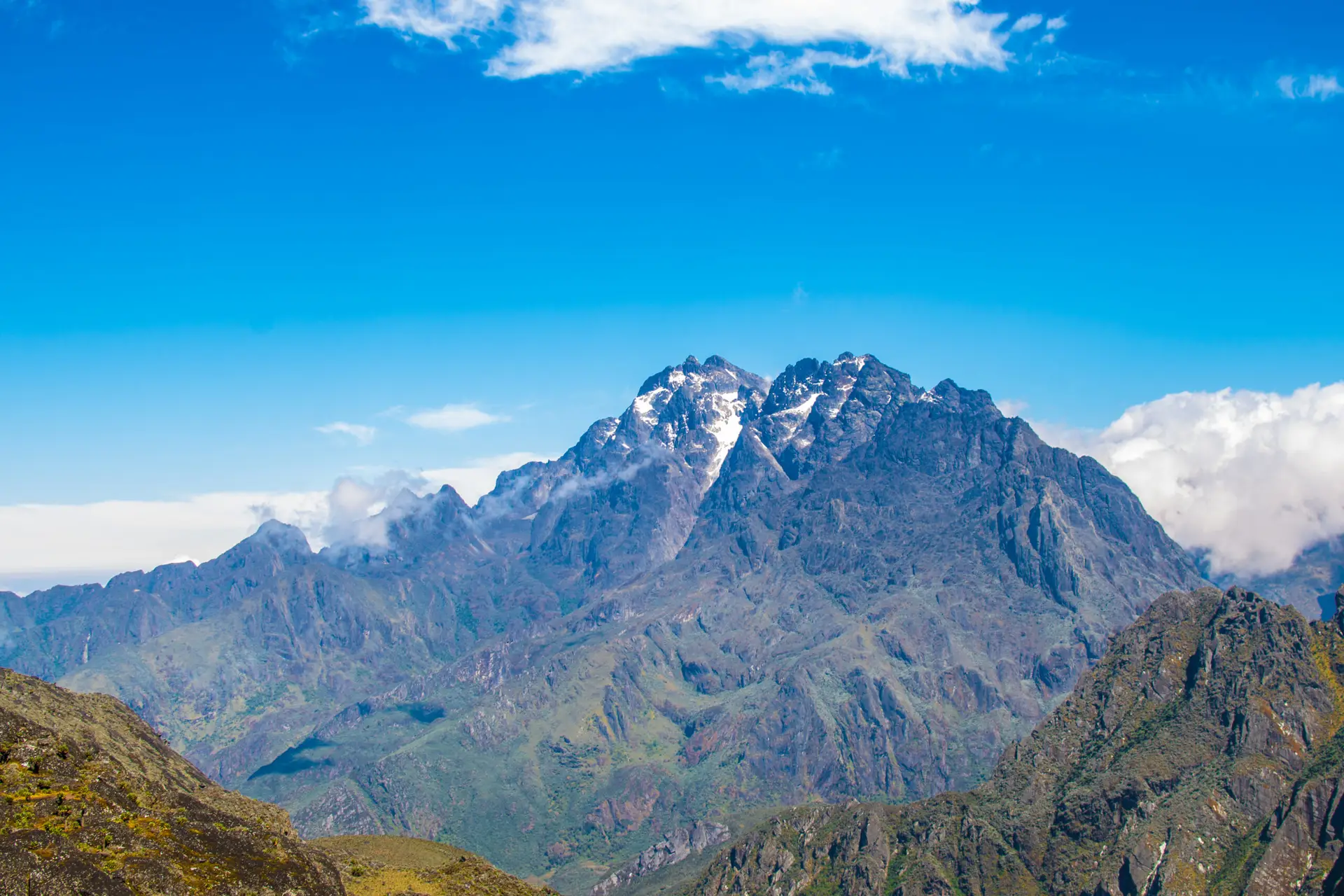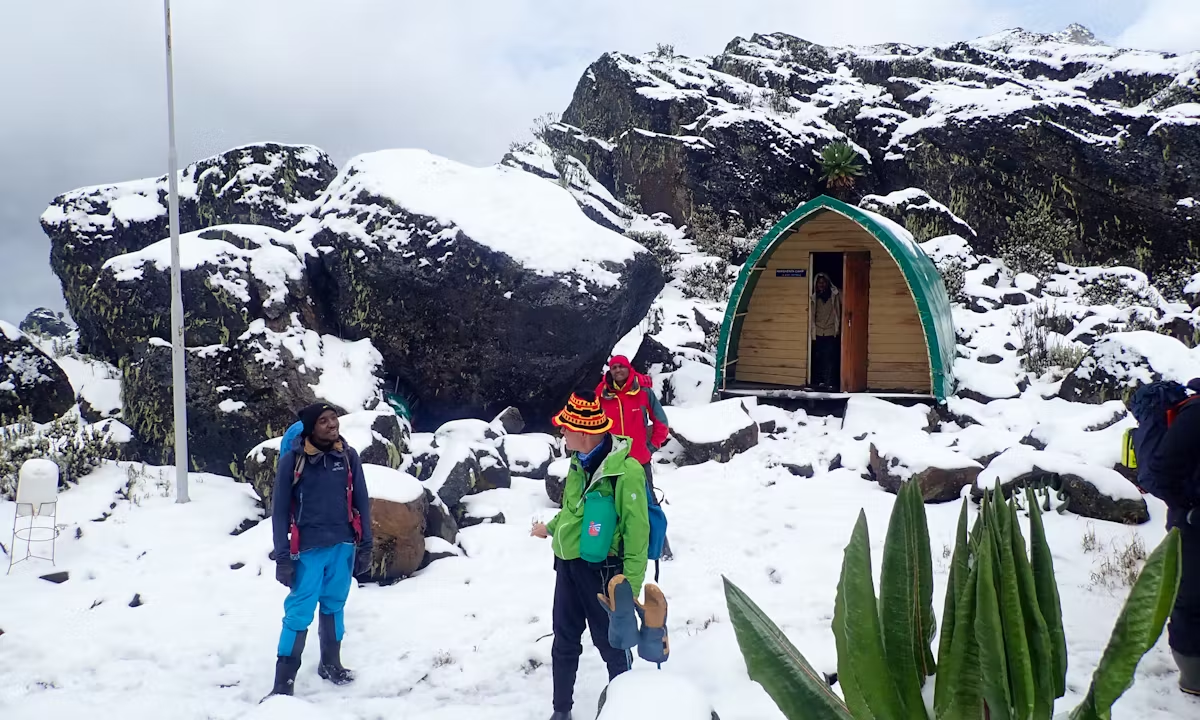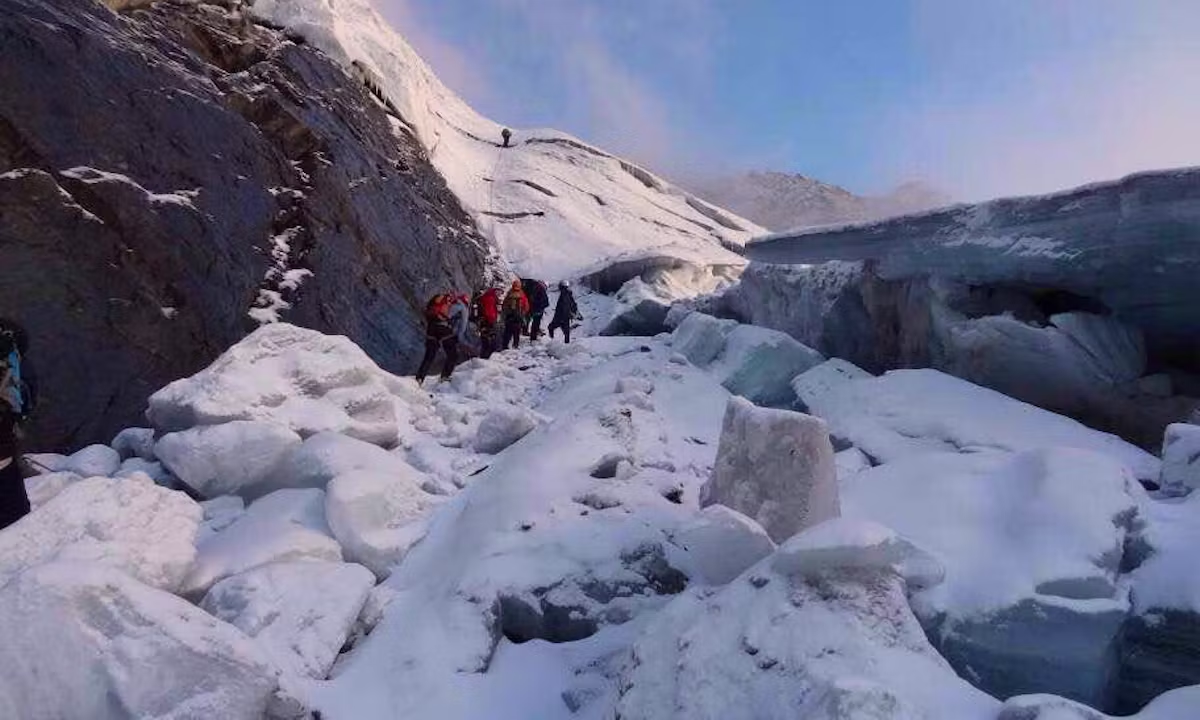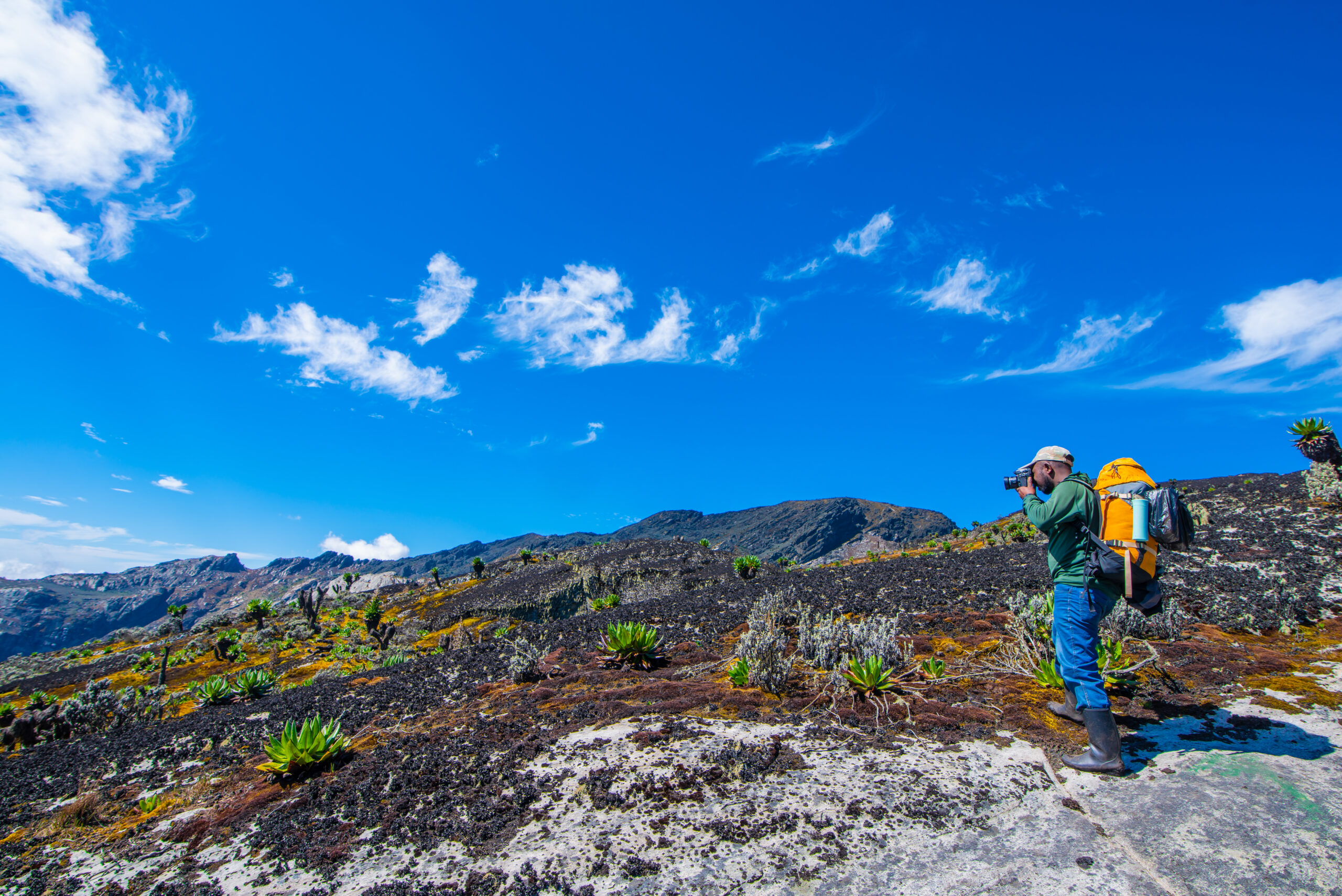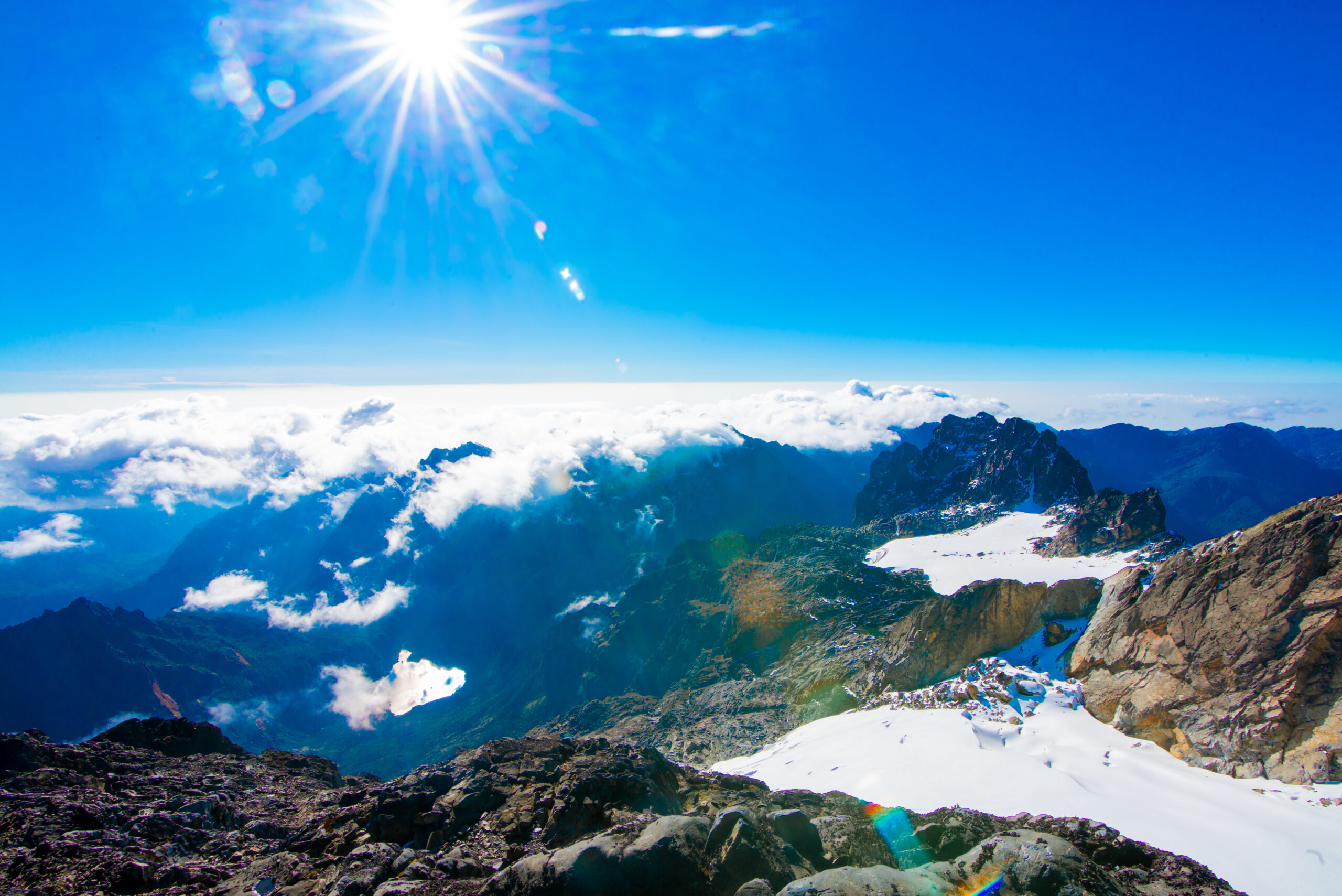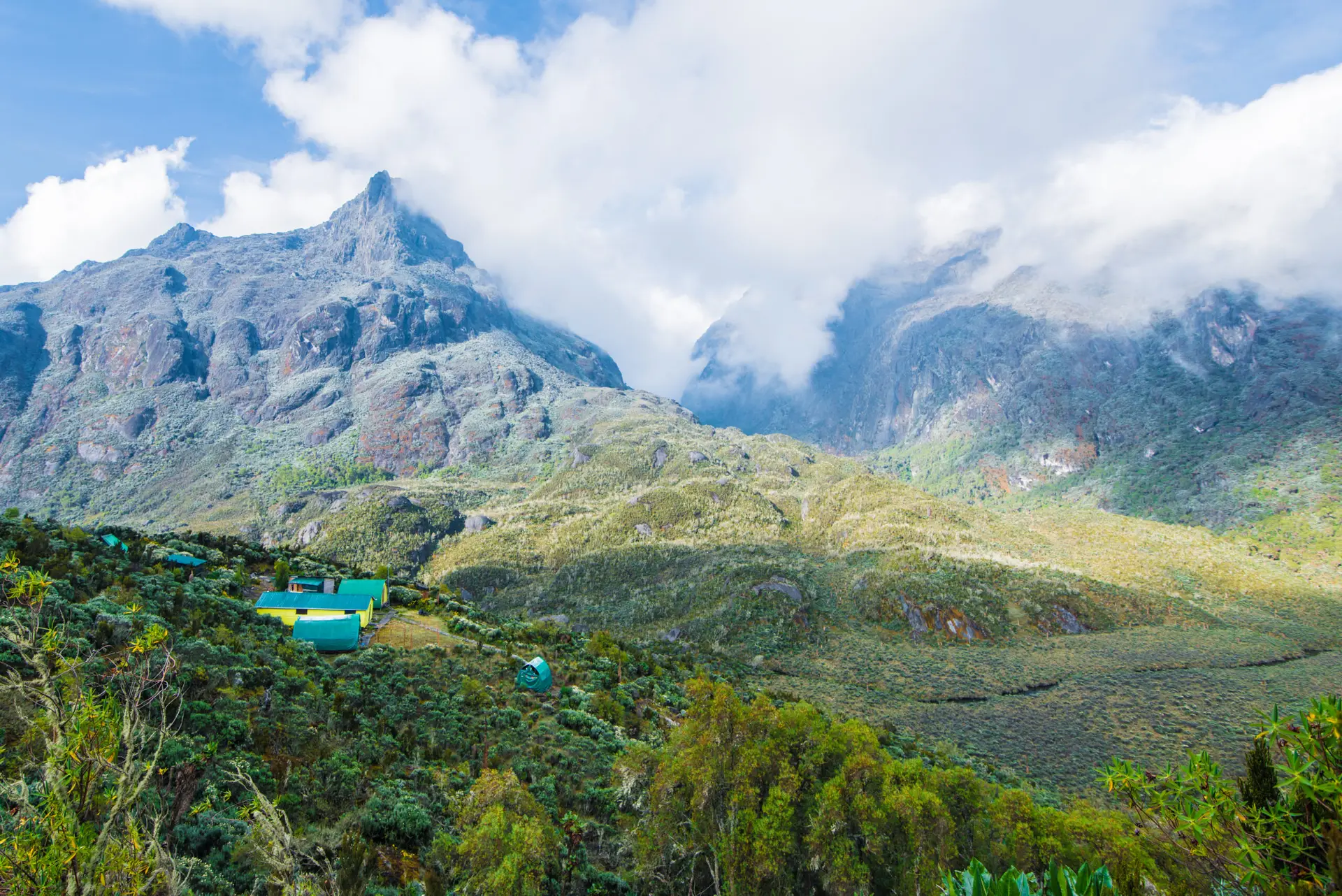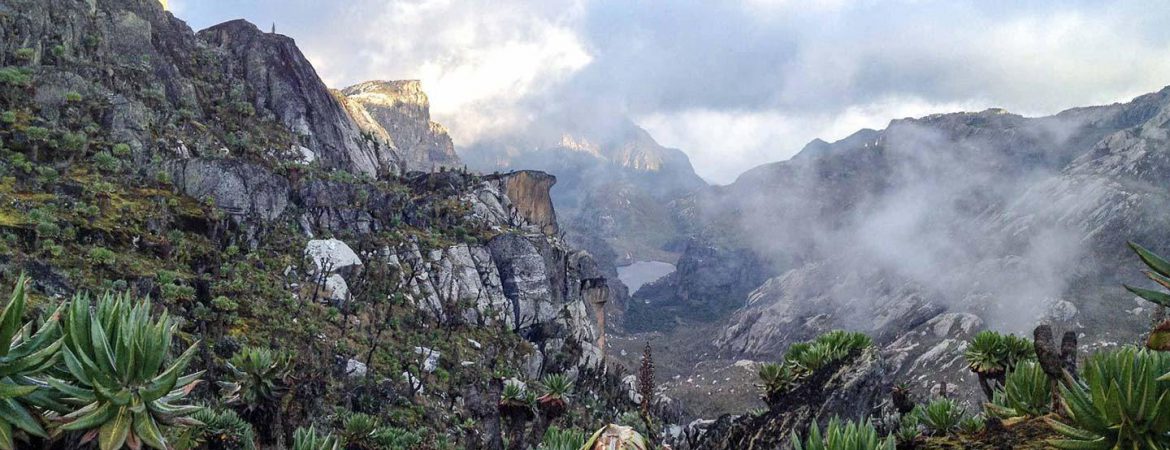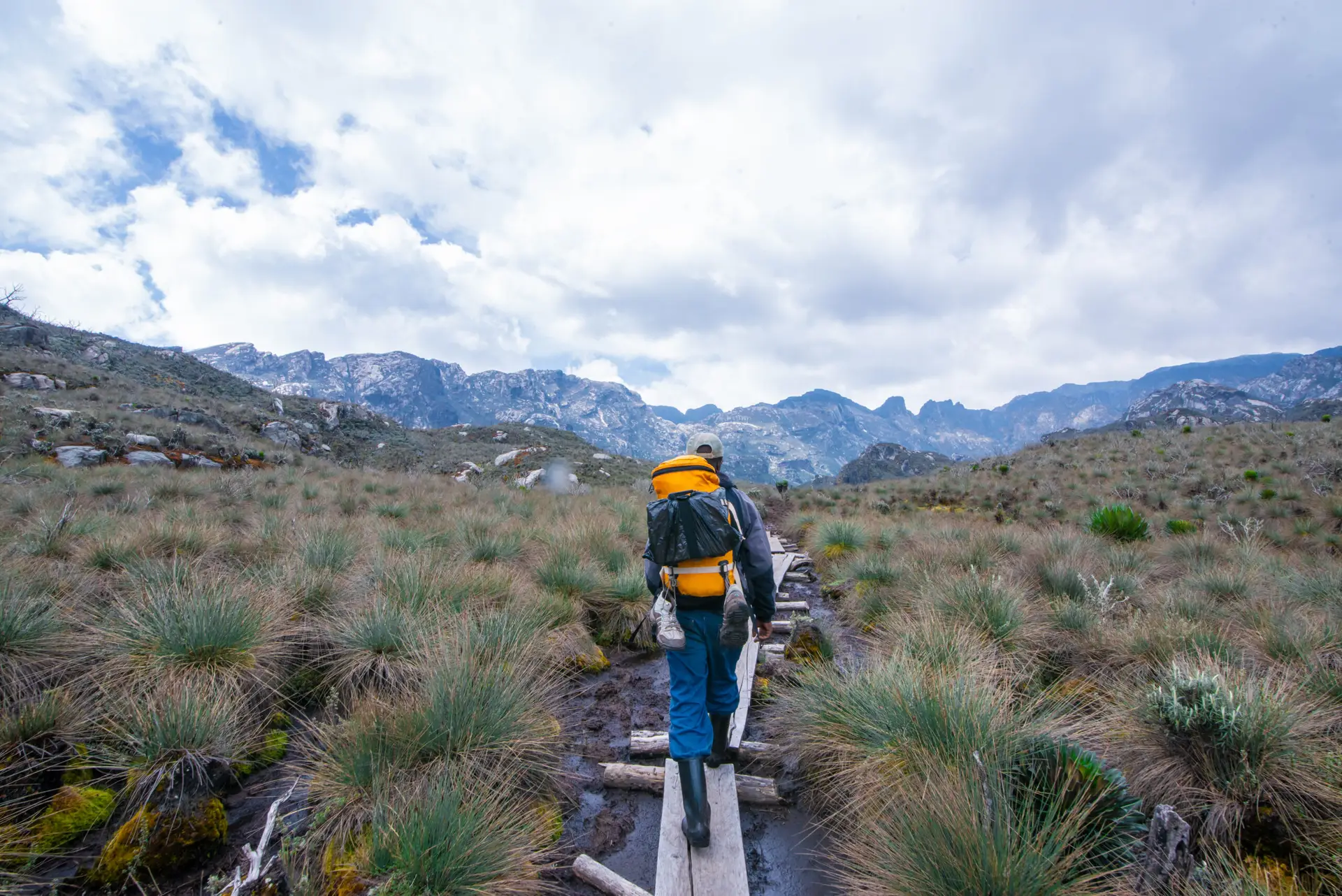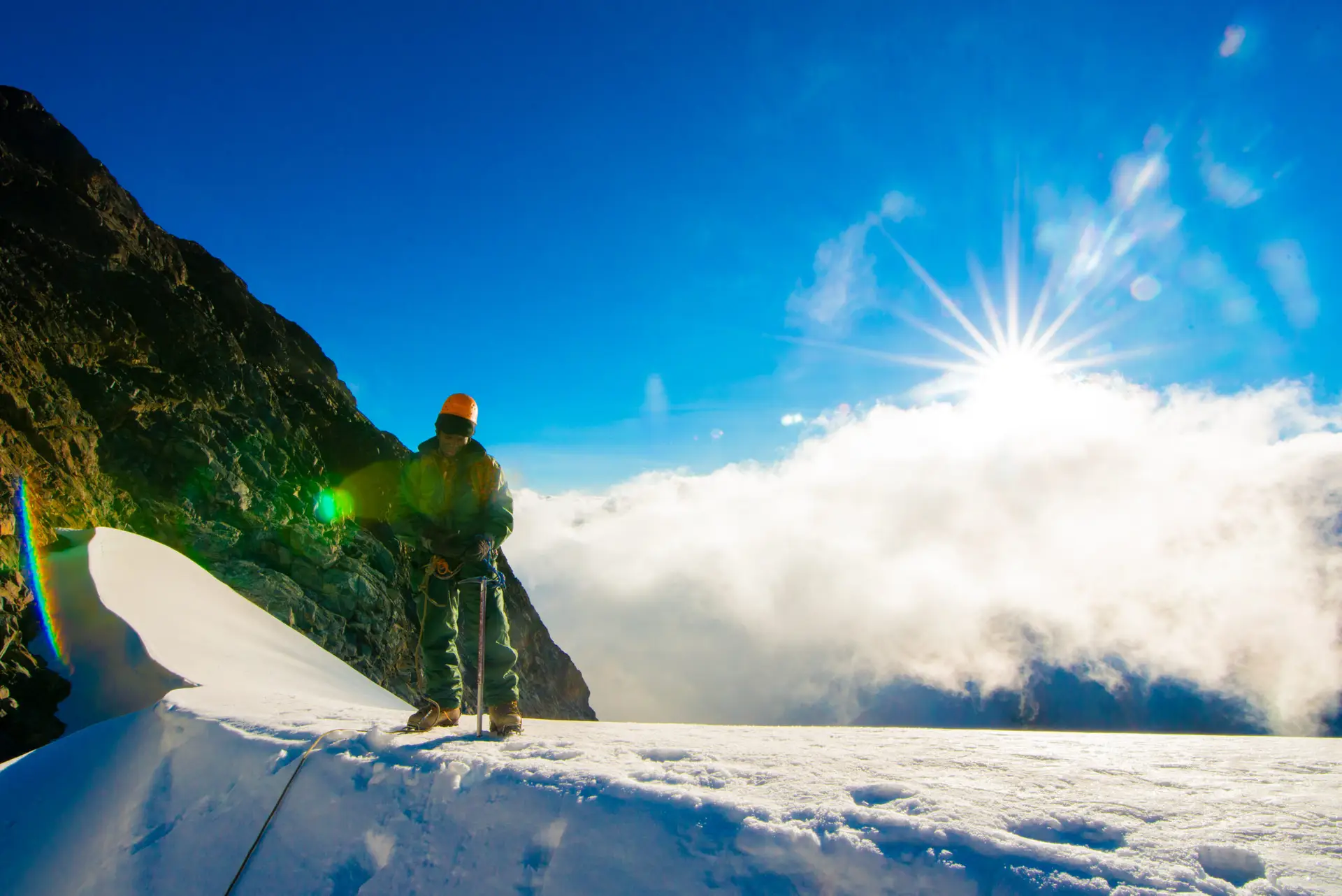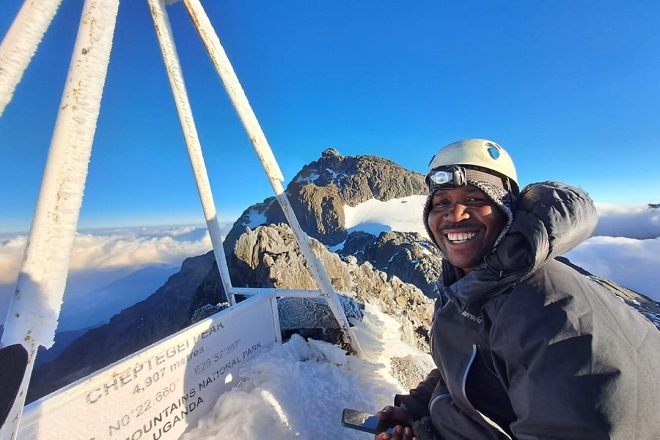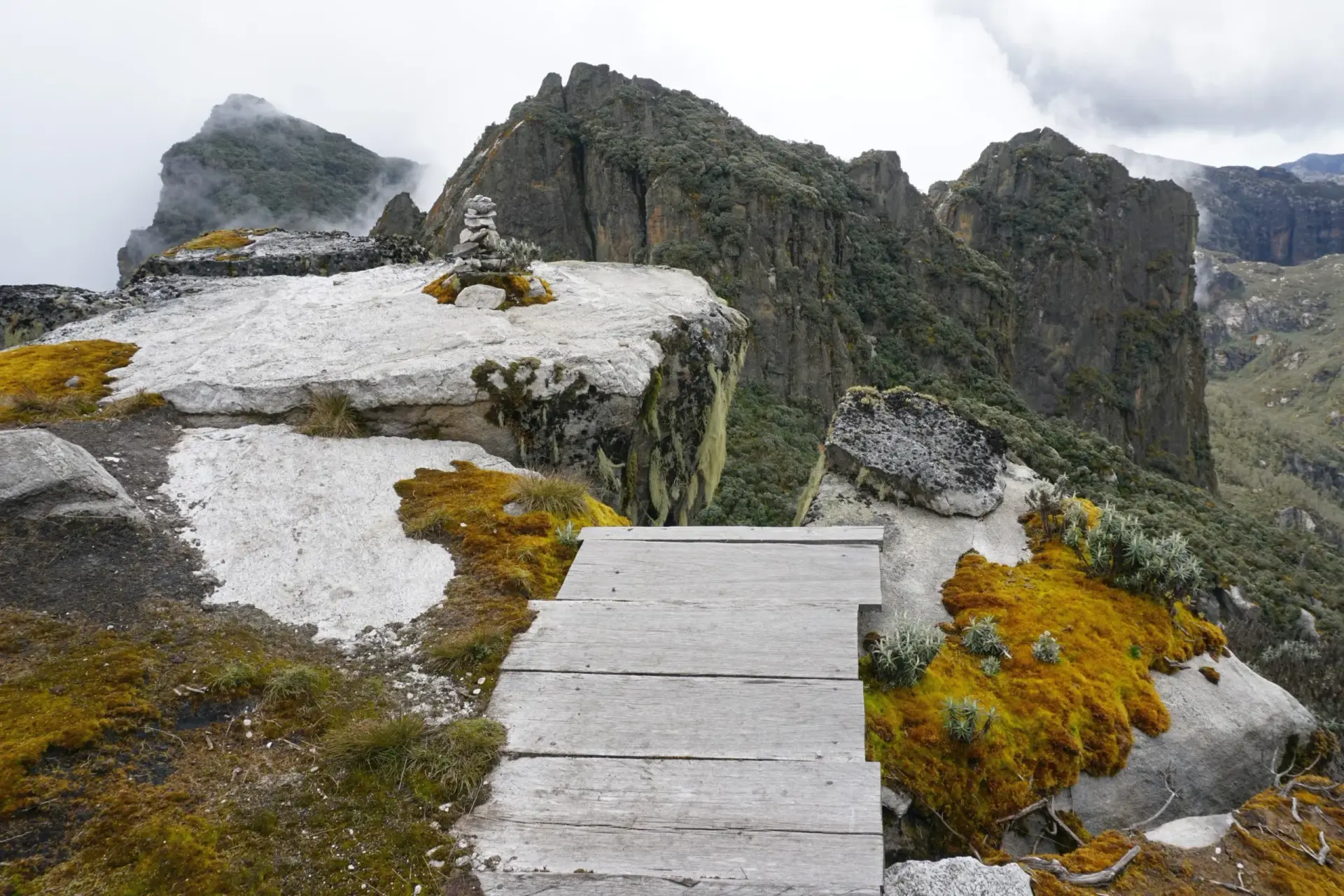Explore Mount Baker, also known as Kiyanja, the sixth-highest peak in Africa, nestled in the mystical Rwenzori Mountains. Discover its history, hiking routes, wildlife, and breathtaking views of Uganda and the Congo. Mount Baker, aka Kiyanja in the local language, rises proudly to 4,844 meters above sea level in the misty heart of the Rwenzori Mountains, in the pearl of Africa. It’s not just a mountain; it’s a living piece of exploration history, biodiversity, and natural wonder. It’s one of Africa’s six highest peaks and part of the Mountains of the Moon ranges.
Mount Baker is a silent guardian on the Uganda–Congo border, sitting in a sacred triangle with Mount Stanley and Mount Speke. This triangle surrounds the mystical Bujuku Valley. Glaciers of Mount Speke once covered the rocky ridges and rugged peaks of Mount Baker. The air is filled with the sounds of waterfalls, bird calls, and the whisper of ancient alpine winds.
Ready to Explore Mount Baker?
We offer a standard path from the Rwenzoris to Mount Baker. Please reach out to our team to book the trip directly or to include it as part of a tailor-made itinerary. The journey to Mount Baker’s summit typically begins from Nyakalengija, the park’s base station near Kasese. Most adventurers follow the Kilembe Trail, a scenic route winding through lush montane forests, moss-covered bamboo zones, and glacier-fed alpine valleys.
History Of Hiking Expeditions to Mount Baker.
An Austrian mountaineer, Rubert Grauer, was the first person to reach the rocky ridgeline of Mount Baker, accompanied by two British missionaries, H. E. Maddox and H. W. Tegart, in January 1906, but a few years earlier, in 1891, a German zoologist and explorer, Franz Stuhlmann, observed the glacier peaks during his expedition as an assistant of Emin Pasha on his adventures in former German East Africa (modern-day Tanzania) and some parts of Congo Zaire and named it either “Semper” or “Ngemwimbi.”
A month after Rubert Grauer, in February and April 1906, an English expedition, including Alexander F. R. Wollaston, Richard Bowen Woosnam, and Douglas Carruthers, also reached the same rocky ridge of Mount Baker.
In the same year, June 1906, the first summit ascent to the highest point of Mount Baker was finally climbed by an expedition led by Prince Luigi Amedeo, Duke of the Abruzzi. This remarkable expedition also famously climbed all the other five highest mountains of the Rwenzori range. The Duke of Abruzzi subsequently renamed the mountain “Mount Baker” in honor of Sir Samuel Baker, a 19th-century British explorer who was the first European to sight and visit Lake Albert, northeast of the Rwenzori Mountains.
Mount Baker’s Role in a Changing Climate
In 2020, climate explorer Klaus Thymann confirmed what scientists had feared: Mount Baker had lost its glaciers. Alongside Mount Speke, it is now one of two formerly glaciated African peaks that no longer hold permanent ice. The change makes every hike not only a personal challenge but also a chance to think about how beautiful and fragile our planet is as it changes.
How to Get There
Mount Baker is accessible from Kasese, Uganda, via the Kilembe Trailhead, or Central Circuit, just a few kilometers away. The closest major city is Fort Portal, and Entebbe International Airport is your gateway into Uganda. All treks require permits and must be guided by a licensed local crew, including porters and chefs accompanied by an armed UWA ranger.
Because Mount Baker is shorter than its taller neighbors, it often goes unnoticed. However, those who hike here will tell you that it is one of the most beautiful hikes in Africa. Mount Baker takes you on an unforgettable hike deep into the “Mountains of the Moon” with its jagged peaks, wild scenery, and quiet beauty.
Essential Advice for Mount Baker (Rwenzori) Treks:
Physical Fitness: Your fitness is crucial. Engage in regular cardio, strength training, and long hikes with a weighted pack for several months before your trip.
Acclimatization: The itineraries are designed for gradual ascent, but listen to your body. Please notify your guide promptly if you experience any symptoms of altitude sickness.
Gear:
- Waterproofs: High-quality, breathable, and waterproof jackets and trousers are essential.
- Warm Layers: Fleece, down jackets, and thermal base layers.
- Footwear: Waterproof, sturdy hiking boots (broken in!) and several pairs of wicking socks. Gaiters are highly recommended to keep mud and water out.
- Sleeping Bag: A warm sleeping bag (comfort rating around -5°C to -10°C) is essential for cold nights in the huts.
- Gloves, hats, and sun protection are essential for varying conditions.
- Headlamp/Torch: For early morning starts and in huts.
- Water Bottle/Hydration Pack: Stay hydrated.
- Snacks: Bring energy bars, nuts, and dried fruit to boost personal energy.
- First Aid Kit: Personal medications, blister treatment, and pain relievers.

Packing list for hiking the Rwenzori Mountains
Local Tour Operator: It is mandatory to trek with a licensed tour operator in Uganda. They will arrange permits, guides, porters, food, and hut accommodation. Research and choose a reputable operator with high safety standards.
Flexibility: The Rwenzori weather is notoriously unpredictable. Be ready for weather-related changes in your plans.
Respect Local Culture & Environment: The Rwenzoris are home to the Bakonjo people, and the park is a fragile ecosystem. Follow Leave No Trace principles.
Growth of Modern Trekking and Challenges;
Following the pioneering expeditions, Mount Baker, like other Rwenzori peaks, gradually became a destination for more adventurous trekkers and mountaineers.
- Accessibility and Infrastructure: Over the decades, infrastructure has slowly developed to support treks into the Rwenzori Mountains. This includes establishing base camps on the trails (i.e., Kilembe & Central Circuit) and a series of huts and camps along popular routes (e.g., Sine Camp, Mutinda, Ellena Hut, Bugata, Nyabitaba, John Matte, and Hunwick’s Camp).
- Glacial Retreat: A significant aspect of modern expeditions to Mount Baker (and the Rwenzoris in general) is the stark reality of glacial retreat. While the peaks were once heavily glaciated, a 2020 expedition confirmed that Mount Baker and Mount Speke no longer have glaciers, a dramatic change from the conditions encountered by early explorers. This alteration affects the nature of certain climbs, although ice and snow may still be present, particularly during the wet season.
- Recent times have witnessed efforts to enhance safety for hikers. For instance, the Uganda Wildlife Authority (UWA) has implemented safety enhancements, including the construction of bridges across crevasses in remaining glaciers (like the Margherita glacier on Mount Stanley) and installing additional climbing ropes.

